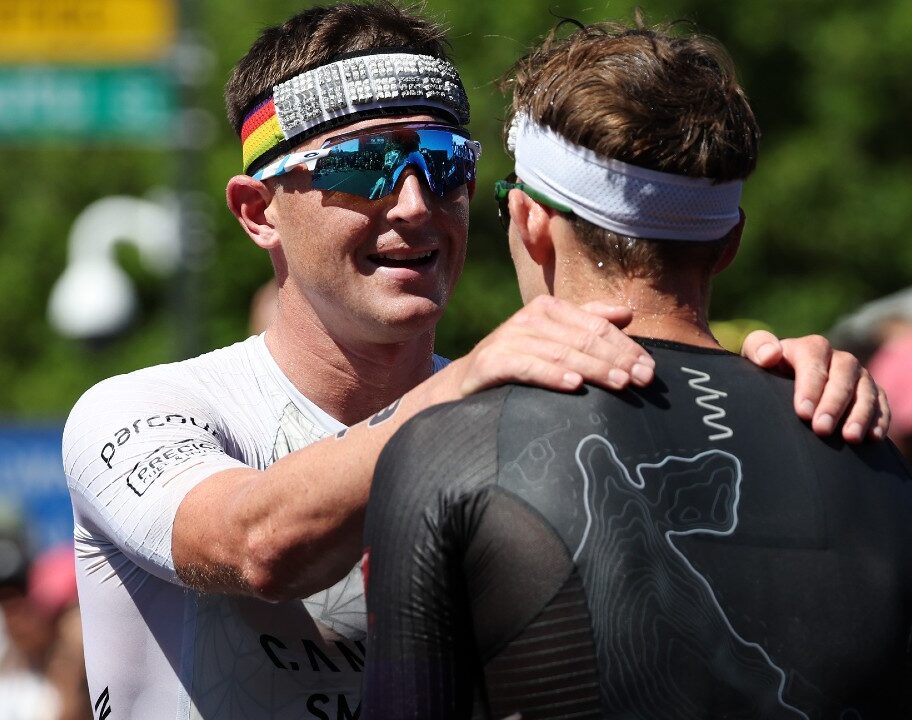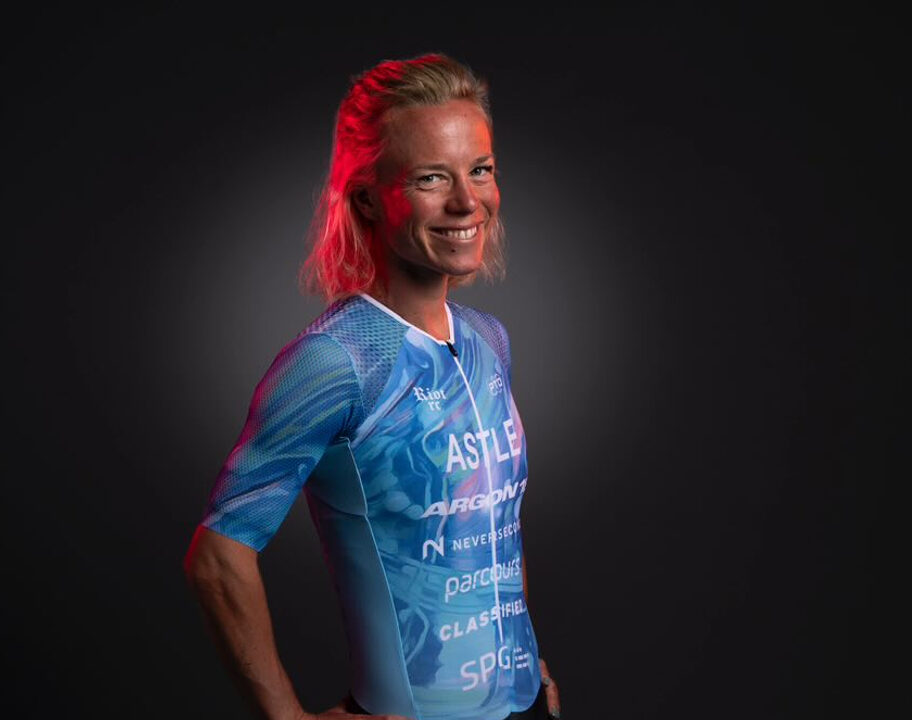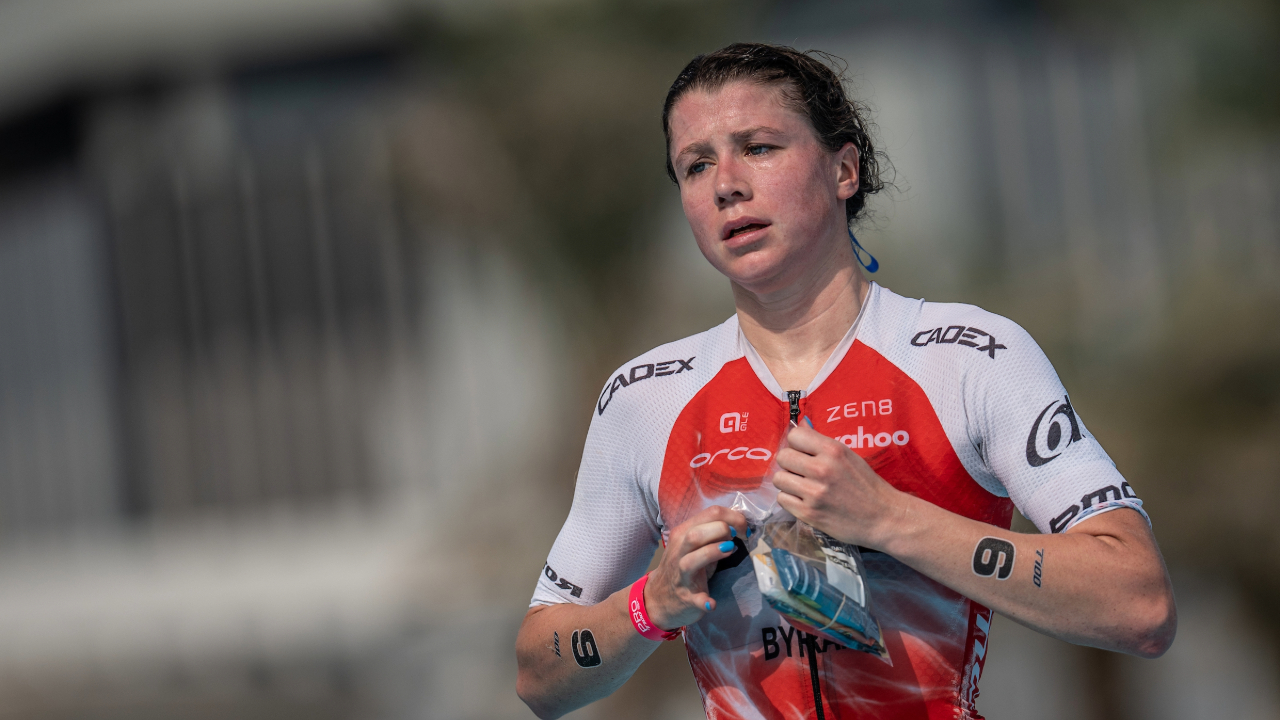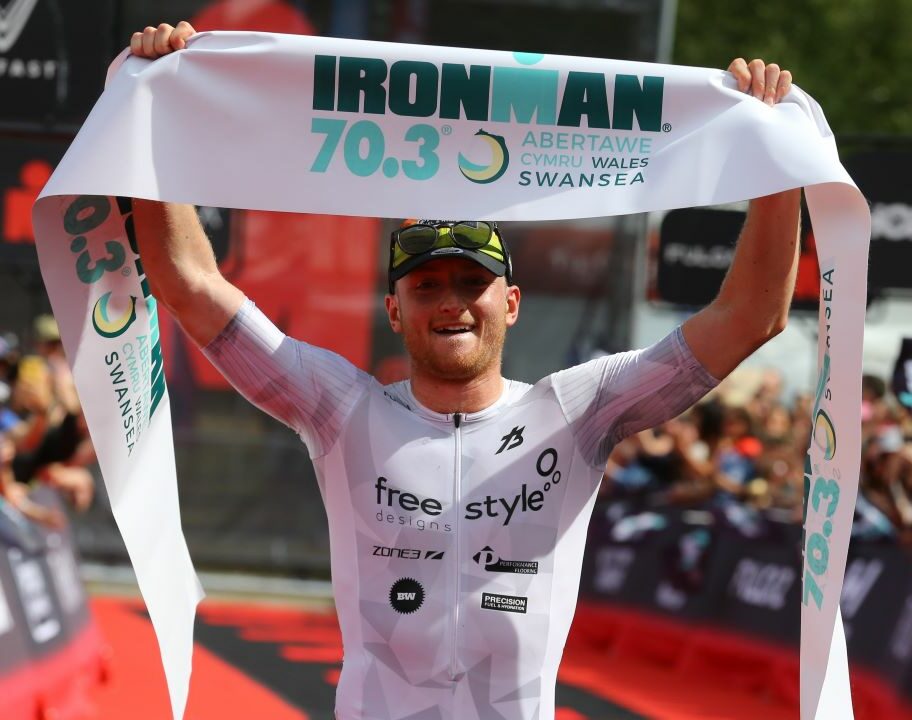This week on ‘Road To St George’ I got to talk at length with German star Laura Philipp and she gave me a fascinating insight into the athletic challenge posed by her menstrual cycle. She seems to be very happy with how she has honed her training and racing strategy to minimise the impact of her cycle on her performances.
It didn’t happen overnight, but through research and listening to her body, Laura Philipp was able to mitigate the impact of a significant challenge – her menstrual cycle.
The 34-year-old German star told me how she was able to connect the dots and understand that her monthly cycle was impacting her in very specific ways as she tried to improve her performances. And through that mix of research and fine tuning she has been able to work with her cycle, and no longer against it.
We spoke as she prepared for the May 7 IRONMAN World Championship with a high altitude training block in St Moritz, Switzerland. She explained this area was one where she was starting with zero knowledge.
Gathering the knowledge
“I have to say first of all I was not an expert in this area at all. I noticed over the years that I always at some part of the month had days where I simply couldn’t push myself – I got really frustrated. I started debating my coach, I was like ‘everything is not working any more’ and then after a week everything was fine again.
“I started to do some research to find out if there’s some connection with the cycle. It was so great to actually find the book by Dr Stacy Sims where I read for the first time that it’s not something weird with me – but there’s actually a connection between the menstrual cycle and the way female athletes feel during their cycle and how they perform.
“I think it’s four or five years since I started to train with my cycle and use my female physiology and not train against it, because I think that’s what I did in the past for certain days in my cycle.”
Training through the cycle
Laura gave me a real insight into how she tweaked her training patterns and output to mitigate the impact caused by her cycle.
“One thing I definitely stopped doing was fasted training for example, and that made a big difference. I felt so much better. Looking back I really felt like in a negative way it was affecting my hormones and my cycle.
“I just tried to learn a lot and track a lot, have a look at how my body reacts when I schedule the training a little bit different. And thankfully my coach Philipp Seipp was very open to it and now I can really say we were able to push myself on another level with working with my cycle.”
The results of the changes Laura was able to make have manifested in several areas – both physical and mental.
“I feel so much better overall – my health is better, I can perform better – of course there’s still certain days where I don’t feel like I would do another personal best but the difference now is that I know why I don’t feel good.
“Just knowing this makes it so much easier to accept that you don’t feel good in a session or maybe the times are not there. Sometimes I just skip a session and this is definitely not something I would have done in the past. I always wanted to push through, and it didn’t do me any good.
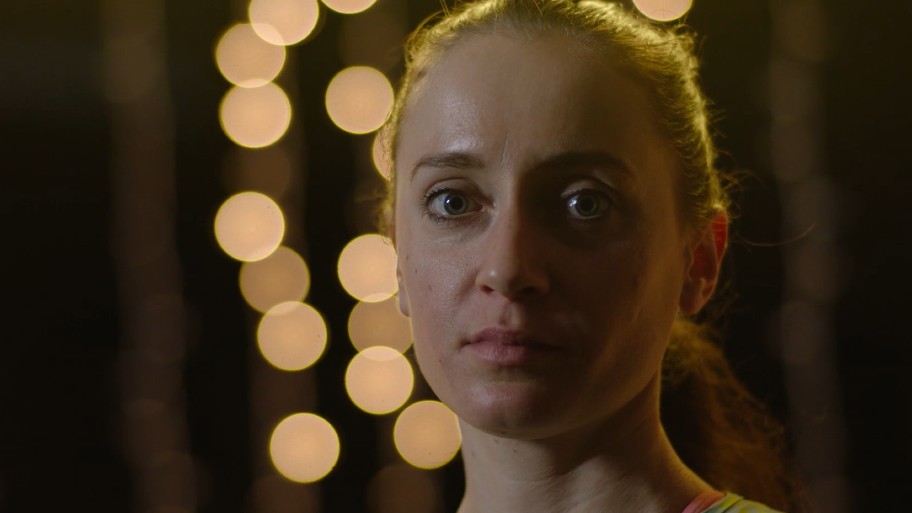
“I’m glad I started doing this, I can encourage more women to be open to speak with their coaches about their cycle and their needs and start reading books and studies about it. It’s a very fascinating theme.”
Phases of the cycle
Laura detailed how her cycle impacts in different ways at different times during the month, and how she is able to work with that knowledge.
“The first half of the cycle starts with your period. Maybe it’s worth mentioning that we are talking about natural menstrual cycles. This only works for women that are not taking any hormonal contraceptives – I think that’s important to mention.
“With a natural menstrual cycle your first half starts with your period and maybe after day 2, I start to feel very strong. The hormonal state is very anabolic and that’s what I feel like – I can hit the gym very hard without getting sore muscle and I also feel very powerful in my intervals. In my training we try to include lots of the high intensity workouts during the first half of my cycle.
“Then with ovulation we start to maybe decrease intensity a bit and do more aerobic work and the great thing as an Ironman athlete is we need to do both. Doing it in a bit of cycling structure. Working so much with my cycle, I have more good days now than bad days. Of course I can’t choose the days that I’m racing on.”
Fuelling and nutrition
As well as amending her training schedules, Laura was able to learn how her nutrition and fuelling could also be a huge positive.
“I also found ways to support my body more. For example the carbohydrate and also hydration need is more in the second half of the cycle, so if I know I have to race or I have a hard workout coming up then I just try to support my body with these special needs and then I can also push through a hard workout. It’s just now maybe like one day in a whole cycle where I would maybe skip a workout because I don’t feel well.”
One thing Laura cannot control of course, is where her races fall within her cycle. But again just having the knowledge is a benefit mentally.
“Looking back most of my races have actually been in the second half, or even close to my period, which for me is like the worst timing. But I was still able to perform well and I had great races, so knowing that definitely helps me mentally so I’m not afraid of any day in my cycle. I think that’s very important.
“I get this question asked very often now, as I know so much about my cycle, I feel it so intense if I’m afraid now of having a bad day, for the World Championship for example of course I also did my calculations to know what day I will be in and for St George it’s actually looking quite good so hopefully nothing will disrupt my cycle at the moment. Because hard training or a lot of stress can definitely have an impact on it.
“We will see but no matter what, it won’t be the day of my cycle which probably has the most impact on race performance. But if I would be in a phase where I don’t feel well I would make sure I fuel really really good – especially carbohydrates – also after training have my proteins ready and just try to be hydrated very well, so drink more.
“Also some supplements can help support your body to work well and maybe have less cramps if that’s some of the symptoms some women experience just before your period. So magnesium can help, Omega-3 fatty acids or BCAAs.
“So there are a few things that you can really try to do to reduce negative symptoms. Also skipping caffeine can help – in the last week of my cycle I try to skip caffeine and dairy products. These are some simple things every woman can do and I’m sure everyone will see positive effects immediately.”








